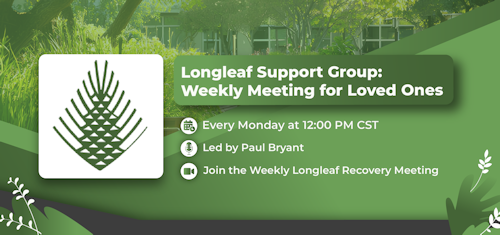Substance abuse and addiction pose significant dangers for people of all ages and genders. But there are some distinct differences in how members of certain demographic groups use or are affected by alcohol and other drugs.
For example, the National Institute on Drug Abuse (NIDA) has reported that men who use heroin typically use larger amounts of the drug for longer periods of time than women do. Men, NIDA has reported, are also more likely to inject heroin than women are.
In a separate report, NIDA data revealed that men are more likely to die from overdoses of heroin and other opioids than women are. For example, men accounted for more than 70% of all opioid overdose deaths in the U.S. in 2020.
Being able to recognize the signs of heroin use in men can help you keep your male friends and family members safe from the many devastating consequences of this drug.
Possible Signs of Heroin Use in Men
Heroin use, abuse, and addiction can alter virtually every aspect of a man’s life. His physical appearance, mental acuity, emotional stability, and behavioral patterns may all undergo significant changes.
Please note that the signs and symptoms of heroin use can vary considerably from person to person. Since heroin use and possession is illegal, many men go to great lengths to conceal any evidence that they’ve been using this substance.
However, as a man’s experience with heroin progresses from use to addiction, it becomes virtually impossible to hide the many ways he has been affected. The sections below include several common physical, mental, emotional, and behavioral signs of heroin use among men.
Physical Signs of Heroin Use in Men
Men who have been using heroin may exhibit the following physical signs:
- Unintentional weight loss
- Glassy eyes and runny nose
- Constricted pupils
- Constipation
- Itchiness
- Significant changes in energy levels
- Hypersomnia (excessive sleeping)
- Sores, scabs, & needle marks
Mental & Emotional Signs of Heroin Use in Men
Heroin use and addiction can cause the following mental and emotional symptoms in men:
- Intense urges to acquire and use heroin
- Anger and irritability
- Dramatic mood swings
- Difficulty focusing or concentrating
- Poor judgment
- Memory problems
- Loss of interest in topics & events that were once very important to them
Behavioral Signs of Heroin Use in Men
Common behavioral signs of heroin use in men include the following:
- Apparent lack of interest in appearance, hygiene, and grooming
- Declining performance and frequent absenteeism at work or in school
- Failing to pay bills or meet other personal & professional responsibilities
- Pulling away from family members and friends
- Being secretive or lying about how they spend their time and who they associate with
- Possessing syringes, rubber tubing, and other items that can be used to inject heroin
- Wearing long pants and long sleeves even in hot weather (in an attempt to hide evidence that they have been injecting heroin)
None of the signs listed above are absolute proof that a man has been using heroin. Many of these signs are also associated with other forms of substance use. They may also indicate that the person has developed a mental health disorder.
What’s most important to understand is that anyone who exhibits or experiences these signs may be in crisis, and they should be assessed by a qualified healthcare provider.
Potential Effects of Heroin Use in Men
There is no such thing as safe heroin use. Using heroin even once can put a man at risk for a wide array of negative effects, including overdose and death.
Continued heroin use can increase the likelihood that a man will experience one or more of the following effects of heroin use:
- Needing to use larger amounts of heroin to experience the effects they desire
- Developing painful physical and psychological symptoms when they can’t acquire or use heroin
- Damage to the liver, kidneys, and heart
- Exposure to HIV/AIDS, hepatitis, and other bloodborne diseases
- Collapsed veins
- Seizures
- Impaired cognitive ability
- Job loss and unemployment
- Being arrested, fined, and/or jailed
- Financial ruin
- Homelessness
- Thoughts of self-harm and suicide
Chronic heroin abuse can feel like a prison from which there is no hope of escape. But heroin addiction is a treatable condition. When a man receives the right type and level of professional care, he can stop using heroin and start living a healthier life.
Benefits of Heroin Treatment for Men
The following are examples of the many benefits of receiving heroin treatment at Birmingham Recovery Center:
- Comprehensive care: We conduct thorough assessments and design customized plans to address the full scope of each person’s needs.
- Personalized support: We work with our patients to identify their short- and long-term goals. Then we help them develop the skills and strategies they need to achieve these objectives.
- Clinical excellence: Treatment for heroin addiction at our center incorporates a variety of time-tested, research-supported techniques.
- Detoxification: The intense distress of heroin withdrawal can quickly push a person back into active heroin use. Our detox program can help a man get through withdrawal safely and with minimal discomfort.
- Medication-assisted treatment: Commonly referred to as MAT, this approach includes medication to ease withdrawal symptoms and therapy to help men resist relapse and remain in recovery.
We also offer detailed aftercare planning to prepare our patients for continued success. Before a man transitions out of our care, he receives a personalized plan that identifies the resources that will support his ongoing recovery efforts.
Begin Heroin Treatment in Birmingham, Alabama
Birmingham Recovery Center is a premier provider of personalized care for men whose lives have been derailed by heroin abuse and addiction. Our team understands the unique ways that men are affected by heroin, and we have developed the focused programming that can help them achieve and maintain successful, long-term recovery. If you or someone you care about has become addicted to heroin, please know that help is available. Contact Birmingham Recovery Center today to learn more.






